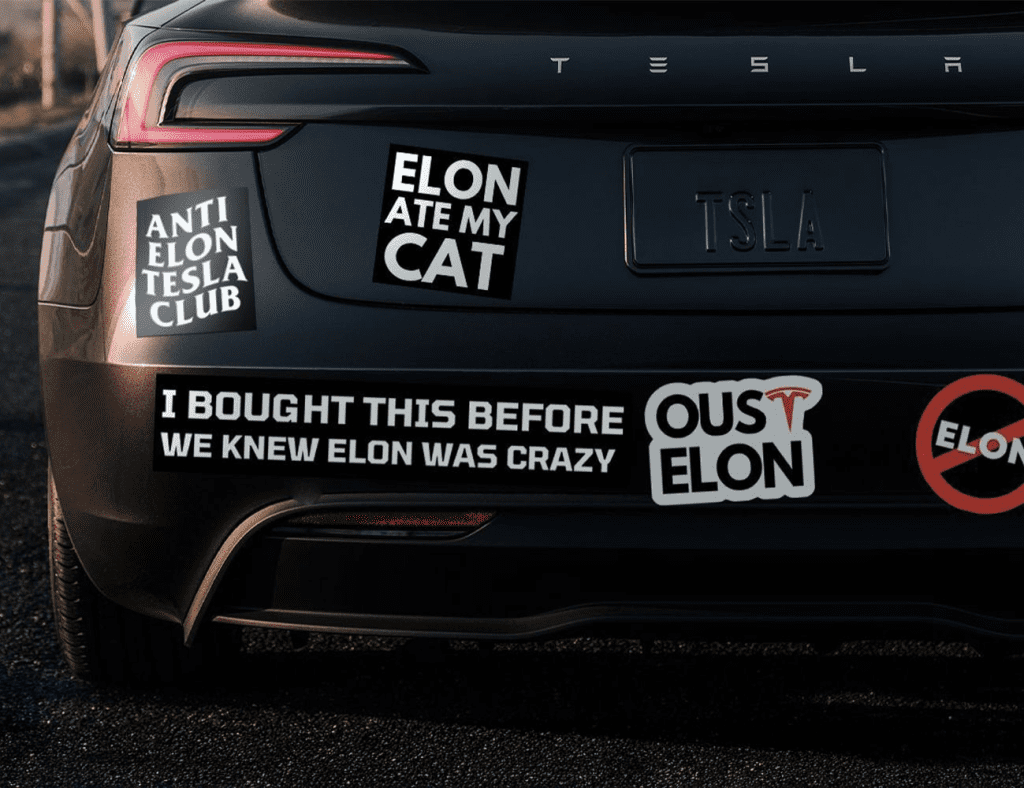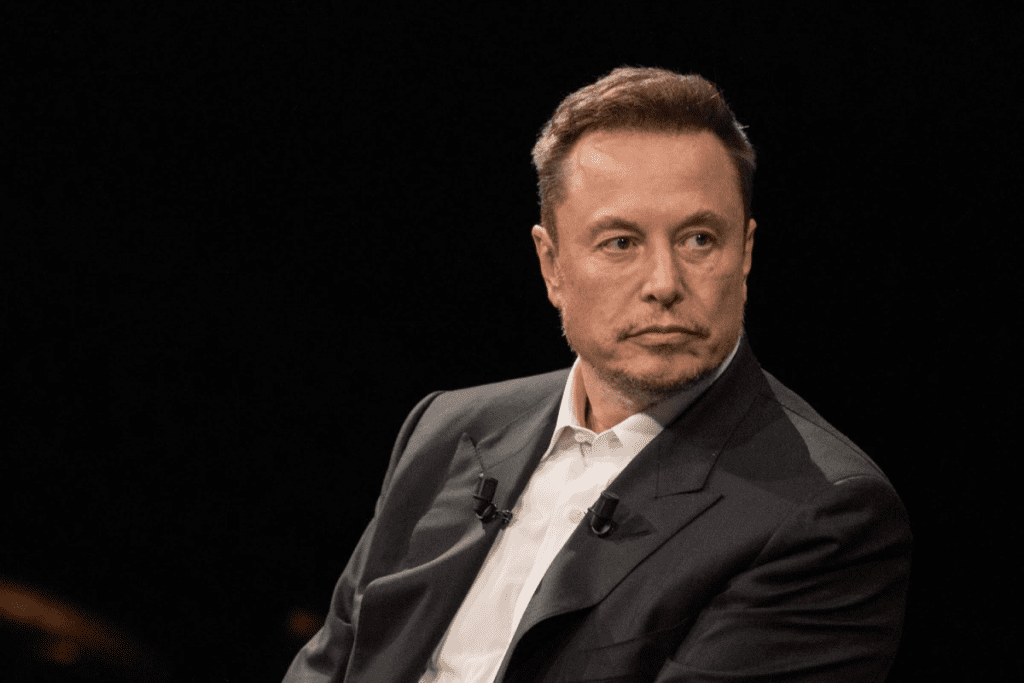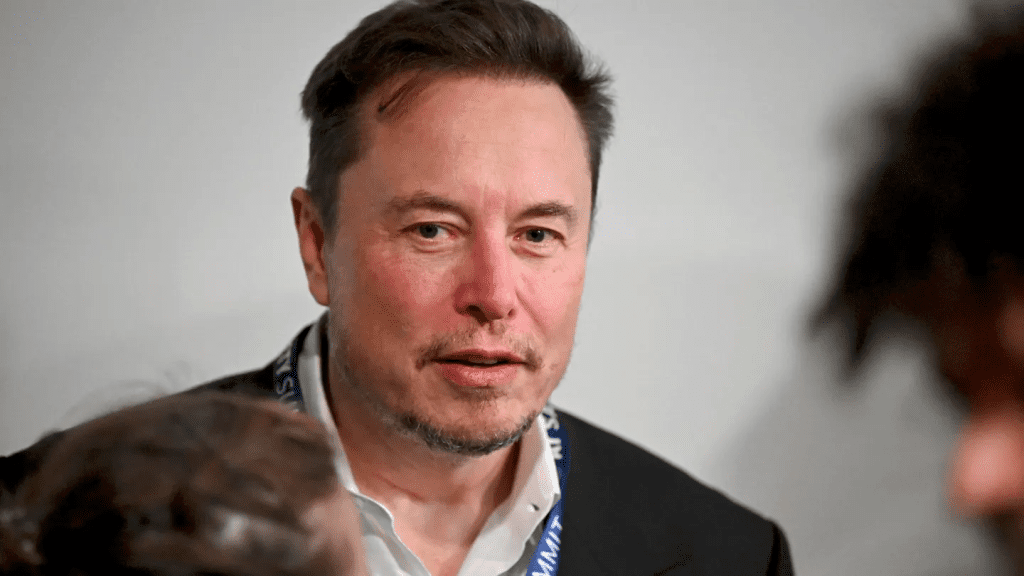
Elon Musk is known for his transformative impact on multiple industries, from electric vehicles at Tesla to space exploration with SpaceX. However, his influence stretches beyond the tech world, reaching unexpected corners of the market.
One such corner has been the rise of Matthew Hiller, a 47-year-old designer from Hawaii, who has turned his disdain for Musk into a highly successful business venture. Hiller, through the sale of anti-Musk stickers, now earns over $100,000 a month, proving how Musk’s polarizing presence can create opportunities for others in the most unlikely of ways.
Hiller’s journey into the world of stickers began with a simple realization: there was a demand for products that allowed Tesla owners, who were disillusioned with Musk, to express their frustration. Many Tesla customers, who had once admired Musk for his vision of sustainable energy and innovative technology, found themselves increasingly alienated by his public statements, business decisions, and controversial actions.
Musk’s high-profile acquisition of Twitter in late 2022, in particular, seemed to push many Tesla owners to reconsider their loyalty to the company. Rather than selling their cars, these owners sought ways to express their dissatisfaction, and that’s where Hiller saw an opportunity.
The first product Hiller created was a humorous pufferfish-shaped sticker, which featured a playful design and a tongue-in-cheek message. Initially, Hiller sold these stickers through platforms like Etsy, Amazon, and eBay, targeting Tesla owners who shared a sense of humor about the frustrations they felt.

While the pufferfish sticker did well, it was a new design that took Hiller’s business to the next level: a sticker explicitly designed to express discontent with Elon Musk himself. The anti-Musk sticker quickly became a best-seller, with some days generating up to $4,500 in sales. This unexpected success marked a turning point for Hiller, turning his small hobby into a full-fledged business.
By January 2023, Hiller had successfully identified a niche market: Tesla owners who felt uncomfortable with Musk’s political stance, his management decisions, and his more recent endeavors. The sticker, which directly referenced Musk’s involvement with Twitter, quickly resonated with this group, and sales skyrocketed.
With his simple yet powerful design, Hiller was able to capture the mood of a growing number of consumers who were looking for a way to distance themselves from Musk’s influence. What began as a small idea blossomed into a thriving business, and soon Hiller was making enough money to consider this his full-time occupation.
The success of Hiller’s business was a direct result of the power of consumer sentiment. In today’s digital age, people increasingly use the products they buy as a form of personal expression. Whether it’s supporting a cause or distancing themselves from a public figure, consumers are more willing than ever to make purchasing decisions based on their beliefs.
Hiller’s anti-Musk stickers allowed Tesla owners to publicly display their discontent in a way that felt personal and meaningful. In a sense, these stickers became a form of resistance—an affordable, accessible way for consumers to make a statement against a tech mogul they no longer supported.

Hiller’s rise to success is also a testament to the influence of social media in modern business. Initially, Hiller’s stickers were not heavily promoted, but word-of-mouth and organic social media posts helped the products gain traction. As more people shared the stickers on social media, particularly among Tesla owner communities, the demand grew exponentially.
The power of social media to amplify niche products has reshaped the way businesses can grow, and Hiller’s success story is a perfect example of this new age of entrepreneurship. The viral nature of social media has allowed small businesses like Hiller’s to flourish, even without large marketing budgets or mainstream advertising.
For Hiller, the success of his business has been both personal and professional. As a former Tesla enthusiast who had considered purchasing a Tesla in 2023, Hiller was disheartened by Musk’s acquisition of Twitter. He openly admitted that he did not want to support Musk’s latest endeavors, and that sentiment is something that he believes many other consumers share.
Hiller’s personal disillusionment with Musk became the driving force behind his product line. He understood firsthand how many people felt conflicted about owning a Tesla while simultaneously disagreeing with Musk’s actions. His stickers offered a way for those individuals to express their views without completely abandoning the product they owned.
Despite the business success, there are still broader societal implications surrounding the rise of businesses that cater to a specific type of consumer sentiment. Hiller’s venture highlights how public figures, particularly those as polarizing as Musk, can inadvertently fuel entrepreneurship. While many entrepreneurs focus on meeting a market demand or filling a gap in traditional industries, Hiller capitalized on a growing divide over Musk’s public persona. His business serves as a powerful example of how consumer behavior—particularly emotional responses to public figures—can be harnessed into viable business opportunities.

Hiller’s rise in the market also exemplifies the power of niche markets and the growing trend of personalization in consumer products. The days of mass-market, one-size-fits-all products are being replaced by an increasing demand for products that reflect individuality and personal belief systems. Consumers no longer just buy products—they buy products that align with their values.
Hiller’s anti-Musk stickers tap into this desire for personal expression, offering an affordable and creative way for Tesla owners to align their purchases with their personal beliefs and political views. The growing demand for such products signals a broader shift in consumer culture, where products are not just about function or style but also about making a statement.
In addition to offering a product that resonates with a specific audience, Hiller’s business highlights the evolving nature of the e-commerce world. With platforms like Etsy, Amazon, and eBay serving as the primary sales channels for small businesses, entrepreneurs now have the opportunity to reach global audiences without the need for physical storefronts or expensive marketing campaigns.
The success of Hiller’s business is a direct result of this accessibility, allowing him to create a profitable business from a simple idea. This democratization of commerce has opened up new opportunities for individuals to monetize niche products and ideas, making entrepreneurship more accessible to a wider range of people.
The growing success of Hiller’s anti-Musk sticker business also raises questions about the ethics of using public figures to drive consumer sales. While Hiller’s stickers are intended to be humorous and offer a form of personal expression, they also capitalize on the increasingly polarized nature of public discourse. Musk, as one of the most high-profile and controversial figures in the world, has become the focal point for numerous cultural debates.

Hiller’s success underscores the ways in which these debates are not just confined to the political sphere but also extend into the marketplace. As consumers become more vocal about their beliefs, products like Hiller’s stickers offer a way to participate in these debates and express dissent in a relatively harmless, yet financially impactful, manner.Despite the playful nature of his stickers, Hiller’s business success is a direct reflection of the influence that Musk’s public persona has had on the market. The success of the anti-Musk stickers proves that Musk’s polarizing actions have given rise to a new type of product that directly reflects the public’s emotional response to a public figure.This is a new form of consumer-driven entrepreneurship, where businesses are born out of cultural movements and public sentiment rather than traditional market research. For Hiller, what started as a small side project has turned into a thriving business, fueled by the same public personality that has brought both admiration and criticism to Musk himself.
In conclusion, Matthew Hiller’s business success, built on the back of consumer dissatisfaction with Elon Musk, serves as a fascinating example of how public figures influence consumer behavior in unexpected ways. Through a simple yet effective product—anti-Musk stickers—Hiller has managed to tap into a growing sentiment of frustration among Tesla owners and turn it into a profitable business.

While the success of Hiller’s stickers may seem like an isolated case, it reflects a broader trend in which personal beliefs, political stances, and social movements are increasingly shaping the products people buy. Musk’s public persona, whether loved or hated, has become the catalyst for a new wave of consumer products, and this type of emotionally charged entrepreneurship could become more common in the future.


